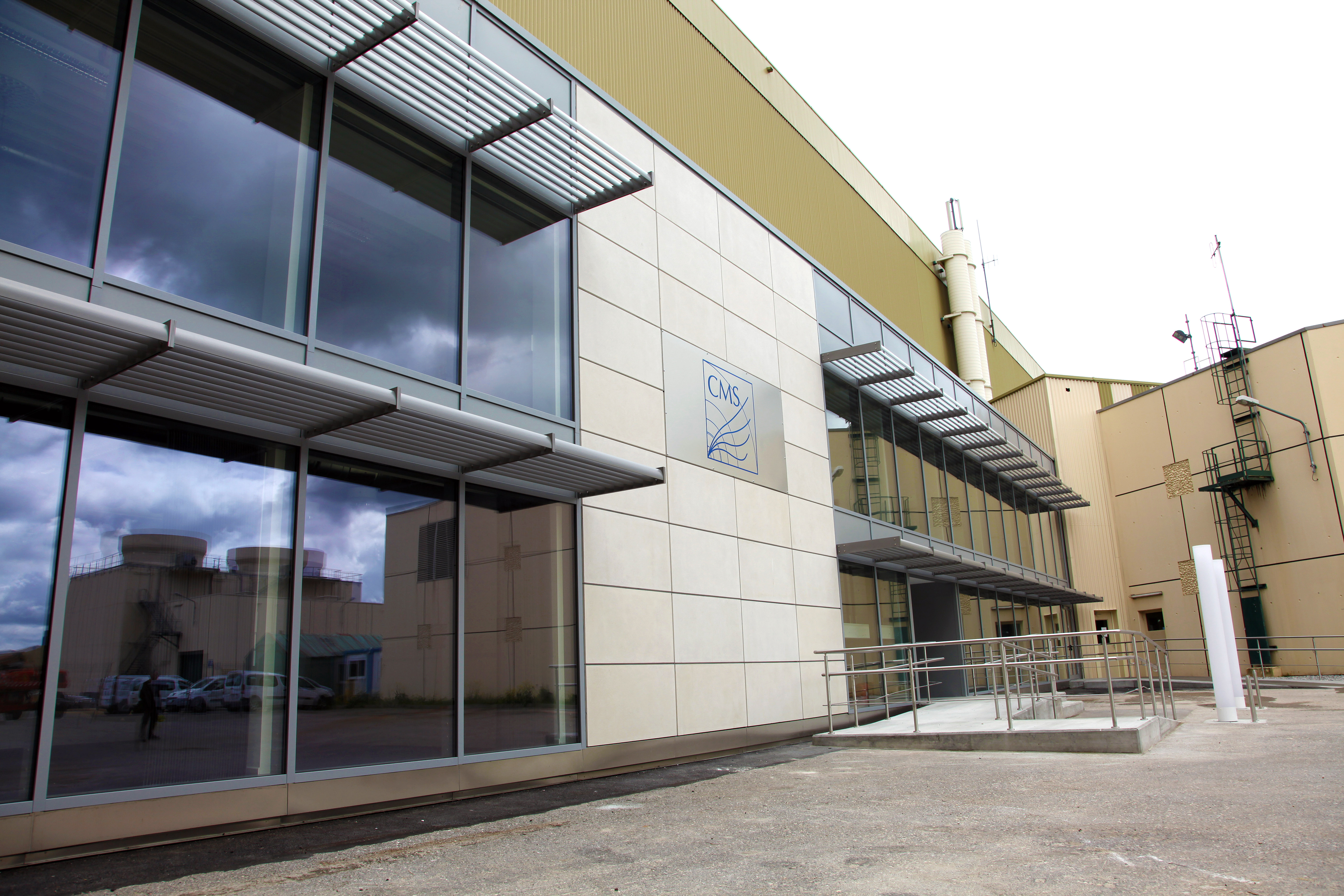
The new Building SL53 on CERN’s Cessy site in France is ready to welcome the thousands of visitors (30,000 in 2013) who come to learn about CMS each year. It boasts low energy consumption and the possibility, in the future, of being heated by recycling the heat given off by the detector.
“Constructed by the GS Department and the firm Dimensione, the building meets the operational requirements of the CMS experiment, which require the uninterrupted use of its infrastructure,” explains Martin Gastal, the member of the collaboration in charge of the project.
Its 560 m2 surface area features a meeting room, eight offices, an open space for CMS users, a rest area with a kitchen, sanitary facilities including showers, and a conference room in which to receive visitors. “The new conference room on the ground floor can accommodate 50 people,” Martin tells us. “It will enable us to introduce a new itinerary for CMS site visits and, along with the notable enlargement of the external car park, will increase the capacity and quality of the visits.”
The focus of the building is on its energy performance: compact and with improved insulation thanks to the low-emissivity triple glazing and sun-shading, SL53 was designed from the beginning to keep its primary energy consumption to a minimum. “Domestic hot water is produced by solar panels and we have installed a high-performance reversible heat pump that can heat and cool the building,” Martin explains. “In addition, all the air-exchange circuits are equipped with an energy-recovery system and the building also has 'smart' systems that control the temperature based on the occupancy of a room, automatic lighting (LED) and no false ceilings, which act as hot/cold air pockets.”
The future’s even greener for SL53 as the building will be used as a prototype to evaluate the potential of the technology used to recycle the energy dissipated in the cooling towers. Indeed, the heat from the water used to cool the detector could be recycled, by injecting it into the floor heating system of the building.
— Submitted by Antonella Del Rosso, originally published in the CERN Bulletin.
- Log in to post comments

